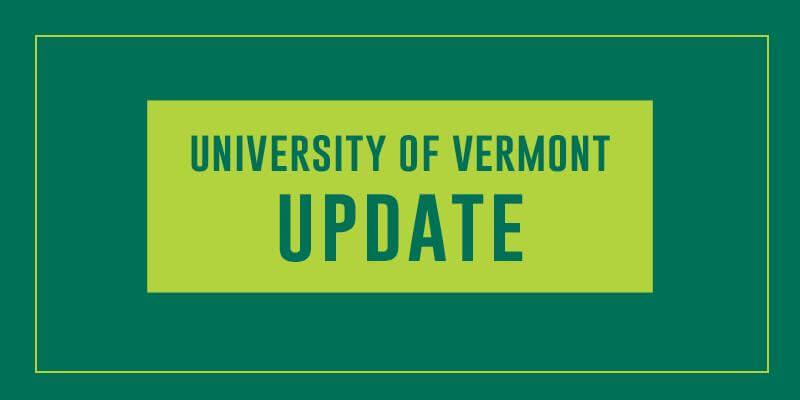Dear Students: Kahlil Gibran, author of the book, The Prophet, once said “Your living is determined not so much by what life brings to you as by the attitude you bring to life; not so much by what happens to you as by the way your mind looks at what happens.” If ever there was a time our attitudes and perspectives matter, now is that time.
I feel and appreciate the stress and disappointment many of you are experiencing with so many unknowns and unexpected events occurring at such an important time in your lives. My job as your Chief Academic Officer is to ensure that you are provided the best quality educational experience possible. I am committed to making this happen as are your course instructors, who have been working diligently to transition course materials to a remote instructional format.
There have been many questions raised in higher education and on our own campus about the most appropriate ways to evaluate students’ classroom performance when there has been disruption midway through the semester. These are difficult and complex questions, and I am committed to creating a response that considers the implications for your future.
My number one priority is ensuring the integrity of the academic content faculty are delivering while balancing the impact of so much unexpected change for you as learners. Honoring my commitment to your academic experience means grading you fairly and appropriately in the context of what is occurring; it is my firm belief that maintaining our current grading structure is the best choice for you and for the institution. With this is mind, I hope you can understand the principles below that have guided my thinking:
- While a completely remote environment is new territory for many students and faculty, I am confident that you will find rich and valuable learning taking place during this time.
- Accreditation bodies require grades for those students in professional programs.
- Students in some programs need letter grades for their major courses to progress in their program.
- Graduate programs across the country often require letter grades for courses relevant to the discipline, as do law and medical schools.
- Many students have worked hard in the first half of the semester and continue to do well in their courses; these students deserve to have their effort reflected in a letter grade.
- Some students are counting on a letter grade in their courses to boost their GPA which helps to ensure they retain scholarships and progress in their programs.
For me, a better option is for the institution to think creatively and effectively about how we can ensure your learning success and fairly evaluate you during this period of remote instruction. With this goal in mind, we have instituted the following:
- To ensure students have enough graded work to make informed decisions prior to the deadline to withdraw from courses, the University is moving the Spring 2020 withdraw deadline to April 3.
- Faculty have been given suggestions for alternatives to high-stakes exams where appropriate and feasible, such as: more frequent, shorter quizzes; open-book take-home exams; and, alternative assignments that require application of knowledge across the semester. Faculty are making adjustments, recognizing that these options may not be a fit in all classes.
- Faculty have been asked to consider adjusting the weighting of assignments or evaluation measures prior to remote instruction, or adjusting their scale for assignments and tests given since remote instruction began.
- For some students with health or internet connectivity challenges, faculty have been encouraged to grant an incomplete so these students can complete their work at a later date.
- We are increasing our online offerings in the summer so students who wish to lighten their load can do so, and enroll in a summer course.
- We have created supports for remote learning for both faculty (CTL Teaching Continuity Website) and students (central page with information for students).
We are dedicated to developing mechanisms to accurately assess your knowledge and skills as well as supporting your success. I know you will bring your ‘can-do’ attitude to your experience, remembering the words of Gibran.
As I used remote instruction to teach my Autism class last Wednesday evening, I was so impressed with my students’ engagement in their learning as their peers made a presentation to the entire class, we commented on video clips using a chat box, and we discussed a case study. I have every confidence our students at UVM will rise to the challenge we are facing and your faculty will be right there beside you to support your success.
Sincerely,
Patricia A. Prelock
Provost and Senior Vice President
